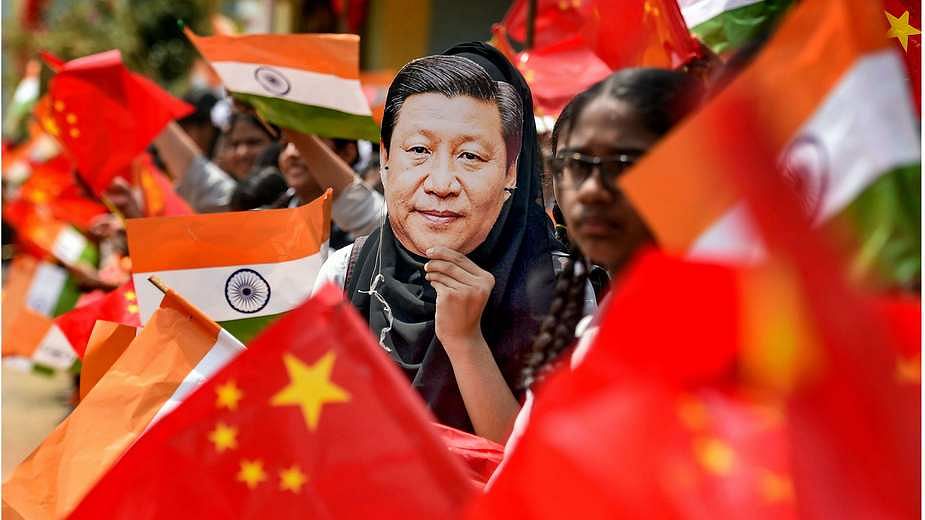Narendra Modi’s India persists in thinking, against overwhelming evidence and common sense, that it can find a modus vivendi with China by convincing Beijing that New Delhi holds no ill will towards it, and possibly even goodwill. This will not work.
So, China’s efforts to raise the Kashmir issue once again at the UN Security Council should not come as a surprise. China’s behaviour is perfectly understandable. It is India’s that is a head-scratcher.
Indian foreign ministry officials appeared to be reluctant – or fearful? – even to mention China, despite the fact that it was China that took the initiative in the UN Security Council. MEA spokesperson Raveesh Kumar was at least willing to say “China” out loud, though only after some prodding from the press, while Indian Permanent Representative to the UN, Syed Akbaruddin, would not say even that, limiting himself to “a UN Security Council permanent member”. There was also a clear attempt to paint this as a Pakistani ploy, as if China was either duped or at least an unwilling partner. This amounts to self-delusion about China, and New Delhi is in for a rude awakening.
Also read: China’s attempt to raise Kashmir at UN seen as distraction: Envoy Syed Akbaruddin
China’s signals
It is not as if China has not given enough signals about how it sees the nature of the relationship. Raveesh Kumar admitted that in previous high-level China-India meetings, India had raised the issue of such manoeuvres in the UN Security Council. If so, the fact that China has done this again can only mean that Beijing has paid little heed to India’s concerns. In other words, Beijing is fully aware that they are engaging in actions that India has objected to previously.
But the fault may not lie with China, and instead with New Delhi and its worldview. China’s behaviour should not be a surprise because this is what countries do: they attempt to weaken potential adversaries and keep them on the defensive because strong adversaries are a natural threat, especially when such potential adversaries are neighbours.
Also read: India’s way is not to be disruptive, it is a decider rather than abstainer: S Jaishankar
China and Pakistan needed each other
This was the logic of both the durability and the strength of the China-Pakistan alliance, which is one of the oldest bilateral security partnerships in the world today. Moreover, China and Pakistan were not even ideologically compatible: when the alliance began in the 1950s, China was a revolutionary, agrarian-Communist regime, while Pakistan was a feudal, military-run religious state. Although ideologically there could not be two dissimilar states, they both saw India as a security problem because of India’s power and its potential. This became the basis of a partnership that has endured because the condition that gave rise to it, India’s power and potential, has endured.
Pakistan and China will continue to see India as a potential threat and partner to counter it. Most importantly, this has little to do with India’s behaviour. If it was India’s behaviour that was responsible for the China-Pakistan partnership, New Delhi could consider changing its behaviour or attempt through dialogues and “informal summits” to convince them, especially China, that India represents no threat to them. The problem is that they are not responding to India’s behaviour but rather to its inherent power. There is little that India can do to convince them that this by itself does not represent a potential threat. Indeed, China and Pakistan would be imprudent and foolish not to do so.
Also read: Modi govt’s trip for envoys to J&K exposes rift between home and external affairs ministries
Un-realism in foreign policy
Nevertheless, it would appear that New Delhi is surprised. The question is why? One important reason may be that India still refuses to see international politics in realist terms. While India’s foreign policy has traditionally been seen as being idealist or at least un-realistic, the assumption was that a ‘nationalist’ government would not be subject to such impulses. The problem is that idealism is not the only path to un-realism because nationalism can also lead to un-realist impulses and behaviour.
India appears to be in the grip of such nationalistic un-realism, which focuses not on material power but rather on ‘normative power’. New Delhi seems to be paying greater attention to spreading Indian culture than on building the sinews of national power. They do not, of course, have to be in conflict because they are not intrinsically contradictory, nor is there any harm in seeking to promote culture. But it becomes a problem if cultural ‘power’ is somehow seen as a substitute for material power, just as India’s moral power, the power of example, was once mistakenly seen as a more valuable asset.
Similarly, nationalism seems to have imbued Indian foreign policy with an even greater faith in diplomacy, especially of the personal kind. Think Narendra Modi’s equation with world leaders. Personal diplomacy and summits are definitely useful, but it is dangerous to think they can alter the consequences of the distribution of international power.
Nationalism also leads to an un-realistic exaggeration of our own capabilities, another Indian tendency that is new in its pathway but not in its substance. India is not China’s equal. New Delhi seems reluctant to recognise that it is far weaker than China, and that this relative weakness necessitates different strategies than India has had to employ until now.
Overconfidence is dangerous in power politics, but this is another lesson that New Delhi refuses to learn.
Nationalism, as much as idealism, refuses to recognise the realities of international power. If it did, India would be less surprised at China’s perfectly understandable behaviour. And possibly, New Delhi would be able to respond more effectively.
The author is a professor in International Politics at Jawaharlal Nehru University, New Delhi. Views are personal.
